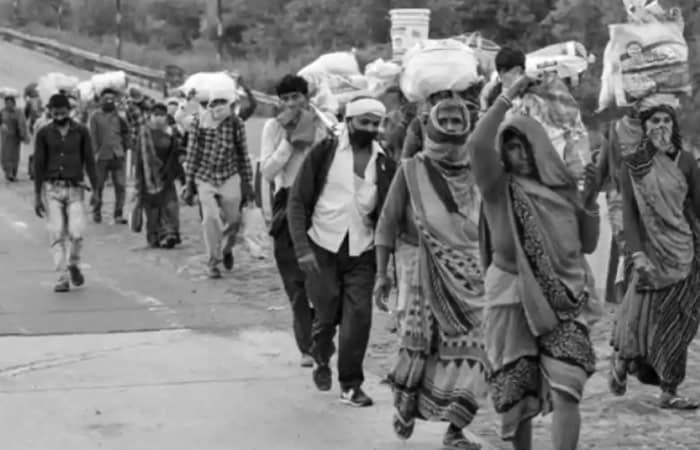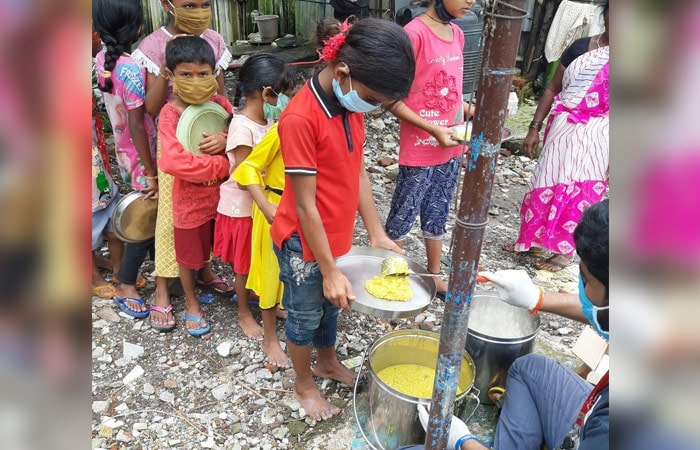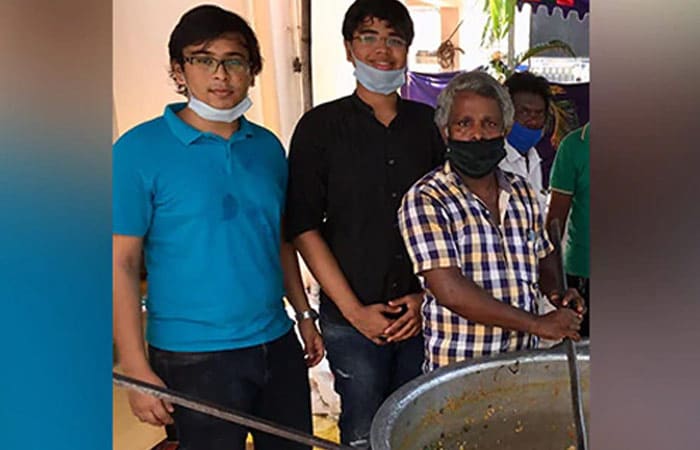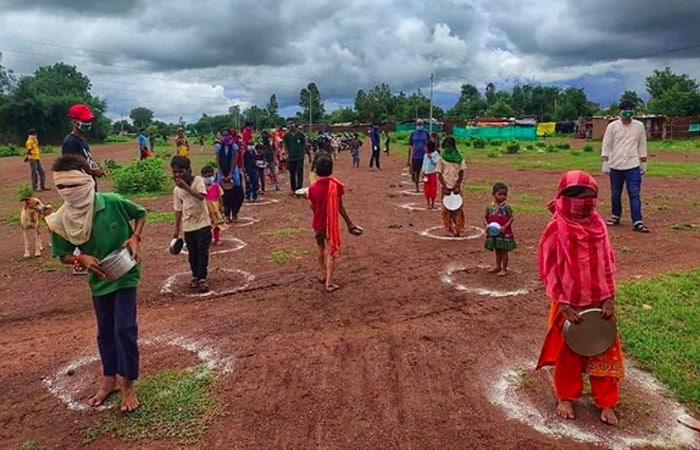COVID Warriors: Feeding India Nutritious Food Amid Coronavirus Crisis
Food and Agriculture Organization of the United Nations (FAO) estimates in ?The State of Food Security and Nutrition in the World, 2020 report that around 189.2 million people are undernourished in India. This means 14 per cent��of the population is undernourished in our country. The report also highlights that 34.7 per cent of the children aged under five in India are stunted (too short for their age), while 20 per cent suffer from wasting, meaning their weight is too low for their height. This is the status when India is known as one of the world's largest food producer, be it of milk, pulses, and ranks as the second largest producer of rice, wheat, sugarcane, groundnut, vegetables, fruit. � The crisis of coronavirus has further worsened the nutritional statistics for the country and thousands of families are missing their meals as services are disturbed due to the pandemic. But in these unprecedented times, there are some warriors�who are�braving all odds and providing nutritious meals to as many people as they can�and making sure that no one goes to sleep on a hungry stomach and has a nutritious meal.
Zomato's Feeding India Initiative: India's foodtech giant - Zomato came up with ?Feeding India' campaign during the nationwide lockdown in March to check the spread of coronavirus. The lockdown meant India's less privileged people suffered a daily challenge of putting food on the plate for their family. Keeping the issue of hunger in mind, ?Feeding India' initiative distributed free ration kits to the most needy families. The ration kits distributed by Zomato consisted of daily essentials like wheat flour, rice and two types of pulses that can be used to cook meals for a family each week. The non-profit initiative worked on user base funding basis, wherein users could donate money -�Rs.500 (for one family),�Rs. 1500 (for 3 families) and�Rs. 2500 (for 5 families). Till now, the initiative has been able to raise over�Rs.�32.5 crore (Rs. 32,57,48,829), which has been used to distribute 7.8 crore meals across 181 cities in India.

Roti Ghar India Initiative From Mumbai: The initiative dates back to 2017, when a social activist from Mumbai, Chinu Kwatra along with his few friends kick-started Roti Ghar with an aim to provide good nutritious one-time meal to more than 100 women and underprivileged children every day. �Chinu Kwatra took help of dieticians and nutritionists for a meal plan and decided to distribute dal and rice as these are high in protein. Later the meal plan was tweaked to serving dal and rice for six days and once a week, serve eggs and misal pav. Since then the initiative has grown and Chinu Kwatra along with his team are now serving over 10,000 people daily in four cities - Mumbai, Thane, Airoli, Bhiwandi. Today, in the time of a pandemic, Chinu's initiative is still going strong and more and more people are being covered with each passing day. What started as an initiative for women and children now covers security guards, labourers, and rag pickers, to name a few. Chinu says currently the focus of Roti Ghar is to provide meals to daily wagers as they are on duty 24�7 and to ensure they are well fed to do their work productively and are not deprived of their livelihood. Till today amidst the coronavirus crisis, over 6 lakhs (6,30,880) meals have been freshly cooked and distributed and�nearly 3 lakh (2,89,590) people have�benefitted with dry ration kits with the help of Roti Ghar initiative.

Brother Duo From Chennai, Feeding People in Need: 21-year-old Abdul Salam and 19-year-old Sultan Abbas, the brother duo from Chennai started to serve food and ration kits to people in need, when lockdown started in India due to the pandemic. The duo had returned from Northern Ireland's Belfast to Chennai right before the lockdown was imposed and after completing the mandatory quarantine, they started helping the people in need by providing food and dry ration as a part of their community service. The social initiative began with the support of friends and family and managed to serve more than 1,000 people.� However, the small initiative took a big leap when they started a page GoFundMe, a crowdfunding platform and started asking donations online for their initiative. The funding page grew as the word spread in their social circle and after few days the initiative got a shout out from their university which gave it a big boost and helped raise more funds. Till now, the brothers have managed to raise more than�Rs.�6 lakh for the initiative and have reached out to more than 13,000 people in Chennai. The ration kits which the duo is providing consists of essential items like rice, pulses, and other food item. One kit can sustain a family for a week.

India's Robins Serving Food Since 2014: The Robin Hood Army is a zero-funds volunteer organisation that works to get surplus food from restaurants and communities to serve the less fortunate. The volunteers who are fondly called India's 'Robins', are largely students and young working professionals who are interested in doing social work in their free time and distributing food to the less fortunate sections of the society which include homeless families, orphanages, patients from public hospitals and old age homes. Started in 2014�as a two-member organisation supported by a few restaurants in Delhi's Hauz Khas area, it has now spread across 182 areas across 13 countries. In coronavirus times, India's robins are continuing their services only this time instead of providing hot, fresh-cooked meals to those who would otherwise not have access to it, the group is now serving dry ration kits with two options - 20-kilogram happiness pack that contains 12 kilos of rice, five kilos of�dal, two kilos of sugar, one kilo of salt and two litres of oil and a 10-kilogram package containing half the rations. Before the lockdown, the Robin Hood Army was serving about 800,000 meals a month on an average, and since the last two or three months of the pandemic, the figure has been around two million meals a month.















